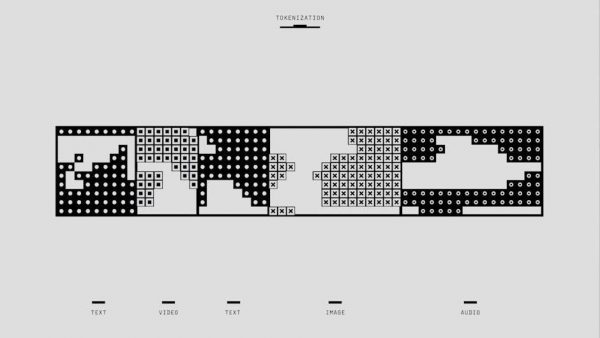The Entered Apprentice Obligation is the first step in Freemasonry, outlining the fundamental principles and responsibilities․ It emphasizes personal growth, enlightenment, and commitment to the Craft․
1․1 Definition and Purpose of the Entered Apprentice Obligation
The Entered Apprentice Obligation is a foundational commitment in Freemasonry, defining the member’s duties and ethical standards․ Its purpose is to initiate individuals into the Craft, fostering personal growth, enlightenment, and a deep understanding of Masonic principles․ This obligation ensures allegiance to the fraternity and outlines the path for spiritual and moral development, emphasizing brotherhood, service, and self-improvement․
1․2 Historical Background of the First Degree in Freemasonry
The Entered Apprentice Degree traces its origins to medieval stonemasonry guilds, where apprentices began their journey․ Over centuries, it evolved into a symbolic initiation, preserving ancient traditions and moral teachings․ This degree marks the entry into Freemasonry, emphasizing personal growth, brotherhood, and ethical conduct, while connecting modern members to the fraternity’s historical roots and timeless principles․
Key Components of the Entered Apprentice Obligation
The obligation includes secrecy, moral duties, and a commitment to seek Masonic knowledge․ It underscores the importance of enlightenment and fidelity to the Craft’s principles․
2․1 The Secrets and Obligations of the First Degree
The Entered Apprentice Obligation introduces the candidate to the fundamental secrets and moral duties of Freemasonry․ It binds them to uphold brotherly love, uprightness, and ethical conduct․ The obligations emphasize secrecy regarding Masonic rituals and symbols, while fostering a commitment to personal improvement and service to others․ This degree lays the cornerstone for the candidate’s journey in the Craft․
2․2 Masonic Knowledge and Enlightenment
Masonic knowledge and enlightenment are central to the Entered Apprentice degree, fostering intellectual and spiritual growth․ The candidate is encouraged to seek knowledge with freedom, fervency, and zeal, embracing self-improvement․ This degree provides foundational teachings, enabling the Apprentice to understand Masonic principles and their application in daily life, promoting a path of continuous learning and moral development․

The Role of the Entered Apprentice in Freemasonry
The Entered Apprentice is initiated into the lodge, swearing allegiance to the Craft․ They embark on a journey of personal development, embracing Masonic values and responsibilities․
3․1 Initiation and Allegiance to the Craft
The initiation of an Entered Apprentice marks their symbolic birth into Freemasonry, where they swear allegiance to the Craft․ This oath binds them to uphold Masonic principles and values, fostering loyalty and commitment․ The ceremony signifies the beginning of their journey, emphasizing trust, integrity, and the pursuit of enlightenment within the fraternity․
3․2 Personal Development and Enlightenment
The Entered Apprentice’s journey emphasizes personal development through relentless pursuit of knowledge․ Enlightening oneself with freedom, fervency, and zeal is central, fostering a deeper understanding of Masonic principles․ This commitment to self-improvement strengthens character, promoting wisdom and integrity․ The quest for enlightenment enriches both the individual and the fraternity, embodying Freemasonry’s core values․
Masonic Education and Self-Improvement
Masonic education emphasizes the pursuit of knowledge with freedom, fervency, and zeal․ Self-improvement through enlightenment enriches personal growth and fosters a deeper understanding of the Craft․
4․1 The Importance of Seeking Knowledge
Seeking knowledge is fundamental in Freemasonry, fostering enlightenment and personal growth; It deepens understanding of Masonic principles and prepares brethren for higher degrees․ Freedom, fervency, and zeal in learning enrich the journey, promoting wisdom and self-improvement․
4․2 Freedom, Fervency, and Zeal in Learning
Freedom, fervency, and zeal in learning are core Masonic values․ They encourage brethren to pursue knowledge with passion and dedication, fostering a deeper understanding of Masonic principles․ This approach ensures continuous growth, both personally and fraternal, while upholding the Craft’s traditions and values․ It is through this mindset that true enlightenment and self-improvement are achieved․

The Structure of the Entered Apprentice Degree
The Entered Apprentice Degree involves initiation rituals, symbolic teachings, and lodge participation․ It introduces candidates to Masonic principles, preparing them for further progression in the Craft․
5․1 The First Degree Ritual and Its Significance
The First Degree Ritual initiates candidates into Freemasonry, introducing them to its principles and symbols․ The ceremony emphasizes moral values, brotherhood, and personal growth․ It includes specific traditions and teachings designed to prepare the Entered Apprentice for their Masonic journey, fostering a deep understanding of the Craft’s foundational ethos and their new role within the fraternity․
5․2 The Role of the Lodge in the Initiation Process
The lodge plays a central role in the initiation of an Entered Apprentice, serving as both a physical and symbolic space for the ritual․ It represents the collective body of Freemasonry, guiding the candidate through the ceremony and imparting essential teachings․ The lodge ensures the integrity of the tradition, fostering a supportive environment for the initiate to embrace their obligations and begin their Masonic journey․

Obligations and Responsibilities of the Entered Apprentice
The Entered Apprentice must demonstrate proficiency in Masonic secrets and uphold ethical standards, fostering enlightenment and allegiance to the Craft while contributing to lodge activities responsibly․
6․1 Demonstrating Proficiency in Masonic Secrets
Demonstrating proficiency in Masonic secrets involves mastering specific teachings, obligations, and symbols․ The Entered Apprentice must show a clear understanding of the principles and commitments outlined in the First Degree․ This includes adhering to confidentiality and upholding the ethical standards of Freemasonry․ Proficiency is often assessed through a 10-question quiz, ensuring the candidate grasps key concepts and organizational structure before advancing․
6․2 Ethical and Moral Responsibilities
The Entered Apprentice is bound by ethical and moral principles, emphasizing honesty, integrity, and respect․ They must uphold Freemasonry’s values in daily life, fostering brotherhood and moral conduct․ These responsibilities include being truthful, honoring commitments, and promoting harmony within the lodge and society․ Adherence to these standards is crucial for personal and collective growth․
Preparation for the Entered Apprentice Degree
Preparation involves understanding Freemasonry’s structure and principles․ Candidates must study core values, ethical conduct, and historical context․ Self-study and lodge resources aid in readiness for the obligation․
7․1 Understanding the Organizational Structure of Freemasonry
Freemasonry operates under a hierarchical structure, beginning with local lodges governed by a Grand Lodge․ Members progress through degrees, with the Entered Apprentice being the first․ Understanding this framework, including roles and responsibilities, is essential for integration and effective participation within the Craft․
7․2 Preparing for the 10-Question Quiz
Preparing for the 10-question quiz involves studying the organizational structure of Freemasonry, Masonic principles, and the obligations of an Entered Apprentice․ Reviewing PDF documents and attending lodge meetings can aid in understanding key concepts․ Emphasize comprehension over memorization to ensure proficiency in the fundamentals of the Craft and its ethical expectations․

The Entered Apprentice Quiz
The Entered Apprentice Quiz assesses readiness for the first degree, covering Masonic principles, organizational structure, and ethical responsibilities․ It ensures understanding before progressing to higher degrees․
8․1 Topics Covered in the Quiz
The quiz evaluates understanding of Masonic principles, organizational structure, and ethical responsibilities․ It includes questions on the definition of an Entered Apprentice, lodge hierarchy, and moral duties; Topics also cover Masonic vocabulary and the significance of the obligation, ensuring candidates grasp fundamental concepts before advancing․ The 10-question format tests comprehension of key teachings and prepares apprentices for further degrees․
8․2 Tips for Successful Completion
To excel in the quiz, dedicate time to studying Masonic principles and the organizational structure of Freemasonry․ Focus on key concepts such as ethical responsibilities, lodge hierarchy, and the significance of the obligation․ Utilize resources like PDF guides and online materials to reinforce learning․ Thoroughly review the topics covered, ensuring a strong understanding of Masonic teachings and their practical applications․
The Transition to the Fellowcraft Degree
Transitioning to the Fellowcraft Degree requires proving worthiness by demonstrating proficiency in Masonic secrets and ethical responsibilities, showcasing readiness for advanced knowledge and deeper commitment to the Craft․
9․1 Proving Worthiness for the Next Degree
Proving worthiness involves demonstrating a thorough understanding of the Entered Apprentice obligations and ethical responsibilities․ Candidates must showcase their commitment to Masonic principles and readiness for advanced knowledge․ This step ensures that individuals are prepared to embrace the deeper teachings and responsibilities of the Fellowcraft Degree, reflecting their dedication to personal growth and service within the Craft․
9․2 The Role of the Fellowcraft in Masonic Progression
The Fellowcraft Degree represents the second stage of Masonic progression, focusing on the pursuit of knowledge and moral development․ It builds upon the foundation established in the Entered Apprentice Degree, emphasizing the importance of education, ethical conduct, and service to others․ This step prepares the candidate for higher degrees and deeper understanding of Freemasonry’s principles and teachings․

The Significance of Masonic Brotherhood
Masonic Brotherhood fosters unity and mutual support among members, emphasizing shared values and ethical conduct to strengthen bonds within the fraternity and the broader community․
10․1 Building Relationships Within the Lodge
Building relationships within the lodge involves fostering camaraderie, trust, and mutual respect among brethren․ Masonic principles encourage collaboration and shared growth, creating a supportive environment for learning and personal development․ Through shared obligations and collective goals, members strengthen bonds, ensuring a united and harmonious fraternity; The lodge serves as a space for both enlightenment and fellowship, enriching the Masonic experience․
10․2 The Importance of Brotherhood in Masonic Obligations
Brotherhood is a pillar of Freemasonry, fostering unity and shared ethical values among members․ It strengthens obligations by creating a bond of mutual support and respect, ensuring brethren uphold their commitments to the Craft and community․ Through brotherhood, Masons collectively contribute to personal and societal improvement, embodying the principles of fellowship and enlightenment central to the Entered Apprentice obligation․

Modern Resources for Entered Apprentices
Modern resources like PDF guides, online platforms, and educational apps provide Entered Apprentices with accessible tools to understand and fulfill their obligations effectively in today’s digital age․
11․1 The Role of PDF Documents in Masonic Education
PDF documents serve as accessible resources for Entered Apprentices, providing detailed guides on Masonic principles, organizational structures, and obligations․ They offer comprehensive materials for self-study, including historical insights and practical knowledge, enabling candidates to prepare effectively for the 10-question quiz and other requirements․ These documents often include exercises and examples, such as suffixes and word formation, to engage learners and enhance understanding of Masonic values and responsibilities․
11․2 Utilizing Online Resources for Further Learning
Online resources provide comprehensive support for Entered Apprentices, offering e-books, video tutorials, and interactive tools․ These platforms enhance understanding of Masonic principles, rituals, and ethical responsibilities․ They also facilitate community engagement, allowing apprentices to connect with brethren globally․ Additionally, online resources often include practice quizzes and study guides, aiding preparation for the 10-question exam and fostering a deeper commitment to self-improvement and Masonic values․
The Entered Apprentice Obligation is a foundational commitment, guiding personal growth, enlightenment, and moral development․ It sets the stage for a lifelong journey in Freemasonry, fostering brotherhood and self-improvement through dedication and knowledge․
12․1 Summary of the Entered Apprentice Obligation
The Entered Apprentice Obligation is a foundational commitment in Freemasonry, outlining the principles of personal growth, ethical conduct, and dedication to the Craft․ It emphasizes the importance of seeking knowledge, fostering enlightenment, and upholding moral responsibilities․ This obligation serves as a guiding framework for the initiate, preparing them for further progression in Masonic education and brotherhood, while reinforcing the core values of Freemasonry․
12․2 The Path Forward in Freemasonry
Completing the Entered Apprentice Obligation marks the beginning of a lifelong journey in Freemasonry․ The next step involves advancing to the Fellowcraft Degree, where deeper Masonic knowledge and principles are explored․ Continuous dedication, ethical living, and a commitment to self-improvement are essential․ With guidance from mentors and brethren, the Entered Apprentice progresses, embracing the fraternity’s values and contributing to its legacy, fostering personal and collective growth․




